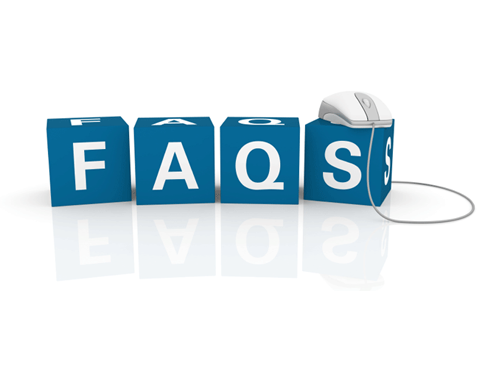Sleep apnea FAQs


Q. Is snoring normal?
A. Most people snore to some degree. Generally speaking, it is quite normal. If snoring gets to the point where it becomes extremely loud and bothersome to others or is accompanied with interrupted breathing, then this degree of snoring is not considered normal.
Q. Is it normal for children to snore?
A. No. If your child snores they should be seen by an Ear, Nose and Throat doctor and usually their tonsils and adenoids are removed.
Q. Do men snore more than women?
A. Snoring is much more prominent in men than in women.
Q. What causes snoring?
A. Snoring is most often caused by loose, weak, or excessive tissue at the back of the throat which collapses into the airway during sleep. This tissue flutters or vibrates as air is breathed in. This fluttering tissue, like a flag flapping in a strong breeze, is the cause of the aggravating noise we know as snoring.
Q. Why do some people snore more loudly than others?
A. Some people are simply born with the characteristics that lend themselves to be snorers. These characteristics are body structure and the anatomy of the mouth and surrounding structures. Outside factors such as medications and alcohol can also make snoring worse.
Q. What about the people who really rattle the house?
A. Snoring can be a "fire alarm" for more serious problems than just keeping others awake. Snoring can signal the existence of Obstructive Sleep Apnea.
Q. Is it up to everyone else to tolerate the loud snoring?
A. Quite frequently someone who snores loudly does not realize or believe that they do. Even when an irate partner complains about it, the snorer may still deny it. This is actually typical of problem snorers. It should be understood that because it is done uncontrollably, snorers are not at fault for their snoring. It should also be understood by snorers, that they may indeed be creating problems for others, whether they care to admit it or not.
Q. My spouse literally stops breathing. It scares me to death! Is this normal?
A. No, this is not normal. It is a symptom of a far more serious problem called Obstructive Sleep Apnea.
Q. What is Obstructive Sleep Apnea?
A. Obstructive Sleep Apnea (OSA) is a condition where the airway becomes covered, usually by the tongue, due to abnormal muscle relaxation of the tongue and surrounding muscles in the throat area. With the airway covered, a person does not breathe. Since no breathing is taking place, one's oxygen level in their body drops and their heart rate increases. This lowered oxygen level is dangerous because it can cause a stroke or heart attack. The higher heart rate is dangerous because it can aggravate high blood pressure. In an attempt to breathe, a person either awakens or partially awakens gasping for breath. Since an individual is always awakening to catch their breath, they never get the deep restful sleep needed by the body.
Q. Is Obstructive Sleep Apnea dangerous?
A. Yes. Sleep apnea has been linked to heart disease, strokes, high blood pressure, personality changes, impotence, depression and nocturia. One of the most significant symptoms is excessive daytime sleepiness. Because of excessive sleepiness, tired drivers have a higher propensity for auto accidents.
Q. Do dental devices really work in treating snoring and apnea?
A. Yes. Medical research has shown that oral appliance therapy is very effective for mild and moderate sleep apnea, and very helpful for CPAP intolerant severe sleep apnea patients. This therapy is also very effective for people that have had surgery and the surgery was not successful.
Q. Will an oral appliance help me if it only partially controls my apnea?
A. Definitely. Research has shown that being 70%, 80% or 90% controlled is much better than 100% uncontrolled.
Q. Will the inexpensive boil and bite mouthpieces I see advertised on TV, intended to treat snoring and sleep apnea, work as well as a custom designed oral appliance made by a qualified dentist?
A. No, they will not. Research has shown that simple boil and bite mouthpieces are not effective in treating sleep apnea.
Q. Are there many dentists trained in this form of treatment?
A. NO. When selecting a dentist to treat you with an oral appliance, be sure that the dentist has the experience, knowledge, and continuing education necessary to treat your problem. Always ask the dentist about his/her credentials.
Q. If I wear an oral appliance to treat my snoring or apnea, how will this affect my jaw joint?
A. Research and clinical data show that there is no adverse effect on the jaw joint. This is not to say that, in rare cases, jaw problems cannot occur. A certain percentage of patients will have tooth or jaw movement. This is a small inconvenience in comparison to the dangers of sleep apnea. Always remember, your ability to breath trumps everything else.
Q. How does my weight affect my snoring?
A. Weight has a direct impact on one's snoring and apnea. The severity of sleep disordered breathing will fluctuate with the ups and downs of one's weight gains and losses.
Q. Are oral appliances a valid alternative to CPAP?
A. Definitely yes. In 2006, the American Academy of Sleep Medicine published a position paper stating that oral appliances are comparable therapy to CPAP for mild and moderate apnea, and a treatment option for patients who were CPAP and surgery failures.
Q. Does insurance cover this therapy?
A. Yes. Our office is an in-network provider for most major dental insurance providers.